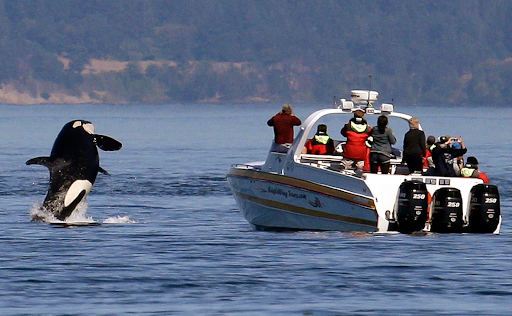
Two people were rescued after a pod of orcas attacked a 50 foot yacht in the Strait of Gibraltar, on May 12th. Luckily the two people rescued were the only occupants of the boat and neither were injured.
This was not the first orca attack in the waters connecting the Atlantic Ocean to the Mediterranean Ocean. There have been more than 37 orca attacks since 2020 in the area, according to ABC News. On a broader scale, there have been approximately 700 orca incidents total since 2020. Orcas tend to attack by slamming into boats repeatedly. In one account from November 2023, the orcas slammed into the rudder of the boat for 45 minutes, according to the New York Times.
The yacht from the 12th became the fifth yacht to sink due to orca attacks since 2019. The orcas slammed and bit at the rudder and hull of the boat to damage the boat, allowing water into the yacht and causing it to sink. The two people on board radioed for help and were rescued by a nearby oil tanker.
Marine biologists aren’t positive of why orcas are behaving this way, but it’s believed that the attacks could be a form of play. It’s also possible that the attacks are the orca’s way of protecting their territory.
Another theory is that one female orca, named White Gladid, went through a “critical moment of agony” caused by a boating incident which resulted in her attacking other boats, according to Alfredo López, an Orca researcher at the Atlantic Orca Working Group, when interviewed by Scientific American. It also seems that White Gladid has been teaching other orcas to attack the boats, and there are now at least 15 orcas participating in the attacks.
In addition, marine biologists are working to track the orcas in hopes that they could find enough information to be able to deter the animals from attacking.
“It is a rare behavior that has only been detected in this part of the world,” López said.
The attacks tend to be most concentrated between April and August and ships are being advised to avoid the Strait of Gibraltar. Spanish authorities warned against going too far from the coast and to continue moving if attacked.




















